- Home
- Darrell Maloney
Return To Ely
Return To Ely Read online
ALONE
Book 10:
Return to Ely
By Darrell Maloney
This is a work of fiction. All persons depicted in this book are fictional characters. Any resemblance to any real person, living or dead, is purely coincidental. Copyright 2018 by Darrell Maloney
This book is dedicated to:
John and Olivia Menendez
Thank you both for all your support.
Previously…
When we last checked in with the Spear family, Dave had found Beth in the tiny town of Adelanto, California.
Half of the couple who’d taken her, a kindly woman named Nellie, had died.
The man, Sal, had taken Beth with the intent of adopting her and protecting her and providing her a home.
In an odd twist of fate it was Beth who adopted Sal. She introduced him to Dave as her “sorta grandpa.”
The three of them… Dave, Beth and Sal… were working their way east to Kansas City.
Dave’s plan was to reunite with his wife and oldest daughter in what would be a joyous and glorious reunion. Full of smiles and laughter and tears of happiness.
He had no clue the Dykes brothers had been wiped out.
Nor of the other secrets which awaited him.
And now… the 10th installment of Alone:
Return to Ely
Chapter 1
They left Lubbock, as was their habit, in late afternoon.
Dave preferred to travel at night.
Not because it was safer, necessarily. That was still a matter of great debate.
Some modern day nomads argued daytime travel was much more dangerous.
In the daytime, they maintained, it was much easier for a man with a rifle and a decent aim to pick off a nomad from a hundred yards away.
And should he miss his first shot, he generally had several others, for there were few places to take cover on a lonely and desolate highway.
And Dave could see that point.
Night travel, though, was fraught with its own perils.
At night it was ridiculously easy for a thug to lie in wait behind one of the abandoned cars on the highway until a juicy target happened by.
Then he could sneak up behind his target, shoot him in the back of the head, and steal all his belongings.
As far as Dave was concerned, both scenarios were equally possible, and equally unavoidable.
The solution was to move as carefully and as cautiously as one could, be sure not to flaunt anything of value, and to hope for the best.
He also prayed twice each day, and encouraged young Beth to pray as well, for safe passage along the way.
“As far as not flaunting anything of value,” he told Sal one afternoon, “that’s hard to do with your rig. Horse-drawn transportation is of tremendous value to highway nomads who are tired of walking. It’s not like we can hide the fact we’re not hoofing it like everybody else.”
Dave’s solution was to travel at night, when Sal’s rig was less visible from a distance.
Also, traveling at night made sense to Dave for a couple of other reasons.
It was way more comfortable, for this was the hottest time of year, and the sun beat down unmercifully upon the day travelers.
It was much more pleasant to travel in late evening and at night, then to spend the hours just after dawn looking for a shady place to take cover while sleeping.
The other reason night travel made sense was that most nomads slept during the hours of darkness.
Nearly all of them slept in the sleeper cabs of abandoned trucks or in tents just off the highway.
In both instances it was easy for the horses to walk relatively quietly past while towing Sal’s “rig.”
It was late evening their first night out of Lubbock. They were headed east on Highway 82, which would take them to Wichita Falls.
From there it was a straight shot north to Oklahoma City, then to Wichita, Kansas and Finally to Kansas City.
Their final destination was Ely, a sleepy little town in the hilly farmland a bit north and east of Kansas City.
They’d taken a wide detour around Amarillo after hearing of a huge mass of outlaws who were robbing and killing travelers around the north Texas city.
Of course, rumors ran rampant among modern-day highway nomads. It was possible this was just a figment of somebody’s imagination.
Or it was possible there was indeed a problem with bandits, but the story was vastly blown out of proportion.
The problem was there was no way of knowing for sure.
Were he still traveling alone, Dave would have eschewed the idea of adding ten days to his trip by detouring over a hundred miles to the south, then working his way north again later.
If he were alone, Dave would have barreled through, a bit extra cautiously, but determined to bull his way along his original route.
But Dave was no longer traveling alone.
He had the care and safety of Beth to think of now.
And to a lesser extent Sal, for he felt responsible for the safety of his new friend and Beth’s new “grandpa.”
Had he known the dire situation in Ely, and the circumstances in which Sarah and Lindsey were now living, he’d have been in more of a hurry.
But when he left them in Ely they were safe and in good hands.
He had no reason to think anything had changed.
No, at this point in their journey Dave had no real reason to be in a hurry.
He didn’t really like the idea of taking a ten-day detour.
But in the grand scheme of things, and just in case the rumors of a massive band of bandits was true, the detour was the prudent thing to do.
Besides, a detour through Lubbock gave him a chance to watch out for an old friend of his.
Red Poston saved his life on his original journey.
He’d stopped at the little town of Blanco in search of parts for the Ford Explorer he got running, despite the best efforts of the EMPs to make a roadside paperweight of it.
The problem was, he chose an auto parts store in the middle of a town run by a brutal banker who seemed to take the pilfering of somebody else’s property personally.
Dave was beaten to within an inch of his life when a shot rang out and a red-headed beauty called a stop to the beating.
It turned out Red was once a nurse.
She oversaw Dave’s recovery and became first a friend, then a traveling companion.
Dave gave her a ride toward Lubbock.
He’d have taken her all the way, and would have helped her exact vengeance on the man who killed her father, but Red had other ideas.
She abandoned her new friend, leaving him a note telling him not to search for her; that her vengeance was something she had to do alone.
Dave hoped to come across Red while passing through Lubbock. He’d thought about her often in the weeks since they went their separate ways.
Alas, though, it wasn’t meant to be.
As they left Lubbock headed east, the setting sun at their backs, Dave wondered whether he’d ever see his friend again.
Then his eye caught something else to take his mind off of Red.
“Well, I’ll be damned,” he said.
Chapter 2
The Ranch House sat exactly halfway between Lubbock and Idalou for many years.
Contrary to its name, it wasn’t a house at all.
Neither was it part of a ranch.
It was what his Uncle Bill called a “honky tonk.”
A nightclub. A bar.
The building itself was set back from the highway about two hundred yards, barely visible in the distance.
Dave might have rolled the rig right past the Ranch House and not even noticed it, had the setting sun not li
t up the wagon wheels.
Lit them up like Christmas tree lights.
“That’s an interesting type of fence,” Sal was prompted to comment.
Interesting indeed.
Between Highway 82 and the Ranch House was a long narrow driveway, paved not with asphalt but with crushed caliche rock.
Each side of the driveway was lined with old-fashioned wagon wheels, cut in halves and planted into the dirt.
The wooden spokes of the hardwood wheels were unpainted, weathered and worn, the steel bands which covered the outer circle of the wheels covered with rust.
But they still made an impressive fence as they stretched into the distance.
Beth, fascinated by the sight, tried the count them.
“One hundred seventeen,” she proudly announced.
Then, a bit dejectedly, she added, “Actually there’s more. But that’s as many as I can see.”
“My uncle used to love this place,” Dave said. “He spent a good part of his life here.
“If he were alive today, he could probably tell you exactly how many, from the highway to the club’s doors.”
“You’ve been here?” Sal asked.
“Several times.
“I’d forgotten all about it.”
He winked at Sal and smiled broadly.
“The Ranch House was where I had my very first beer.”
“Tell me about it, Daddy.”
“The Ranch House was a glorious place back in its day. My Uncle Bill’s favorite bar. I came out and spent part of my summers with him during my teen years.
“They used to play live music on Friday and Saturday nights.
“Local bands, mostly, although they occasionally booked a singer who was past his prime and on the way to obscurity. Always country bands because this is Texas after all.
“I remember they had a hitching post in front of the place, and some hard-core cowboys in the area would ride in on their horses.”
“And you said they served you beer there?”
“Yes. Oh, they weren’t supposed to. But they knew my Uncle Bill well, and he talked them into it. They had to be discrete about it, though. They served it in a soda cup for me. I had to drink it through a straw, which was kind of bizarre.”
“How old were you, Daddy?”
“When I had my first beer? Sixteen, I think.”
“Can I try it when I’m sixteen?”
“No.”
“How come? You did.”
Dave looked to Sal for help.
Sal just shrugged.
Then he whispered to Dave, “You got yourself into this. I can’t help you.”
Dave changed the subject.
“I tried to count the wagon wheels myself once, Peanut.
“It was kinda hard, because I was in a moving car. It was when we left the last time I was here. They were moving past as we drove, and I lost track.”
Beth, smarter than her years, had one last dig to give.
“Kinda hard to count when you’re drunk on beer you shouldn’t have been having, huh Dad?”
Several things happened, all at once.
Dave realized his daughter was growing up.
And that he needed to learn to keep his mouth shut about things better left in the past.
Beth saw her father from a different perspective.
She saw him not as just the hero he’d always been to her, but as a human.
A human with flaws; a human who’s made mistakes, done things he shouldn’t have done, who wasn’t perfect.
But he was still her dad, and she still loved him.
One could be imperfect and still be a hero to a young girl still partly child, but working hard to grow up.
She decided he was still a pretty cool dad.
And definitely still her hero.
“Daddy?”
“Yes, Peanut?”
“I love you. Even though you’re not perfect.”
Dave looked at Sal, who shrugged again.
He didn’t know what she meant either.
But Dave would take it.
“I love you too, Peanut.”
As the rig rolled slowly past the long caliche driveway Dave committed the sight of the wagon wheels forever into the recesses of his mind.
The Ranch House experience would be a pleasant memory of a simpler time in his life.
A time when surviving from day to day was something one took for granted.
When he didn’t have to wonder each day when he awakened how many people he’d encounter in the new day who might want to kill him or his family. Who might want to rob them of everything they owned.
Back in those days, when he was staying with his Uncle Bill, Dave’s biggest worry was what this girl or that girl thought of him or whether one of his friends back in San Antonio was making a move on a girl he liked in his absence.
My, how times had changed.
He decided he didn’t like the world much anymore; or at least what it had become.
He also made a mental note to himself not to judge Lindsey harshly for the secrets she kept or for what she tried to get away with.
For he did the very same thing when he was roughly the same age.
Chapter 3
Seven hundred miles and seemingly a world away in a bunker beneath the forests of Ely, Kansas, Lindsey lay upon her bunk thinking.
Wishing she knew where her father was at that very minute.
Whether he’d been successful in finding and liberating her sister Beth.
Whether they were on their way back to the bunker.
Whether, upon his return to Ely, he’d be able to liberate her and her mom as well.
She hoped he was still alive.
She’d been trying to steel herself for the possibility Dave’s luck had finally run out. That he was dead at the hands of bad men.
That she’d never see him or Beth again.
She was what she considered an “optimistic realist.”
She hoped that good would win out over evil, that dreams came true, that in the end everything would more or less work itself out.
At the same time, though, she knew the world had changed in so many ways and that evil men often had the upper hand.
She wanted so much to believe her dad was working his way to her, Beth in tow, and would rid the bunker of the plague Manson and his men had brought to it.
To give up on that hope would be to just roll over and play dead.
The atmosphere in the bunker had changed dramatically since Santos worked up the nerve to shove a knife into Manson’s throat.
As expected, the change in leadership was relatively seamless.
John Parker was better liked and more respected than Manson.
Moreover, he was more fair. He wasn’t prone to mood swings and fits of anger as Manson had been.
Santos was smart in letting Parker know ahead of time of his plans to kill their leader.
It wasn’t that he wanted Parker’s blessing; he instinctively felt that Parker was like all the others in that he felt the group would be better off without Manson in their midst.
Rather it was a matter of courtesy, and to let Parker know he had no desire to take Manson’s place.
“I want to get rid of him just because he’s made my life a living hell,” Santos told Parker ahead of time. “I don’t want to take over, and will respect your right to take his place as leader. I expect nothing for my actions other than to live my life without that brutal dictator of a man.”
Parker knew Santos was gay.
He knew that Manson was homophobic, and suspected if Manson ever found out Santos’ deepest secret he’d have executed him on the spot.
He didn’t know whether that played into Santos’ decision to assassinate Manson.
Perhaps Manson had seen or heard something which made him suspicious of Santos. Perhaps he’d been asking questions which were making Santos nervous.
Perhaps despite Santos’ protestations he was merely making a p
re-emptive strike; getting rid of Manson before Manson got rid of him.
In the end it didn’t really matter.
For a long time Manson had been hated by his men.
And although he was a better than average leader, it was past time for him to go.
“Do what you need to,” Parker told Santos that night. “I’ll make sure no one retaliates against you.”
Getting Parker’s blessing gave Santos the little boost of courage he needed to finally take that step.
He’d been riding the fence, telling himself he was ready and able to thrust that knife into Manson’s throat; but at the same time worried that such a move might incur the wrath of John Parker, who he liked and respected.
Now the deed was done.
Manson’s body had been dragged from the bunker and left in the woods to rot.
Parker was now firmly in charge of the operation and by all accounts there was a lot less stress for all concerned.
Most of the stress that remained was sexual tension.
The men were hoping Parker would ease Manson’s restriction against them having their way with Lindsey and Kara.
They were both off-limits to the men when Manson was alive.
They were hoping Parker would see things differently and were disappointed when Parker left all his predecessor’s policies intact.
“I’ll not have you brutalize someone who has not yet reached womanhood,” he pronounced. “Nor a young mother who is nursing her infant. If any of you want to be animals your place isn’t in here. It’s out there in the woods.
“If you wish to leave, do so. But if you stay you will comport yourself with some restraint.”
All of them had been happy to see Manson gone. The initial fear Santos felt that the men might take revenge on him was unfounded.
Things went on more or less as they had before Manson died.
Santos only had trouble with one man.
Terry Vega knew Santos was gay but kept it secret until after Manson died.
It wasn’t necessarily because he liked Santos.

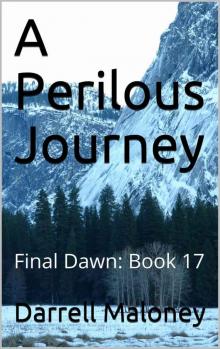 A Perilous Journey
A Perilous Journey The Yellowstone Event: Book 6: The Aftermath
The Yellowstone Event: Book 6: The Aftermath Eden Bound
Eden Bound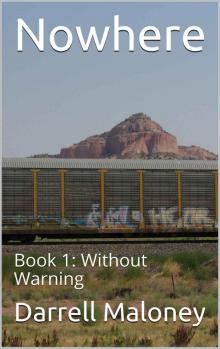 Without Warning
Without Warning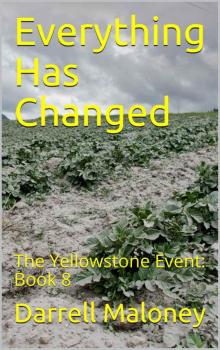 Everything Has Changed
Everything Has Changed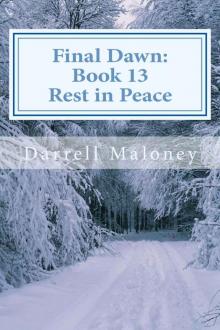 Rest in Peace
Rest in Peace This Changes Everything
This Changes Everything The Final Chapter
The Final Chapter It Can't Be Her
It Can't Be Her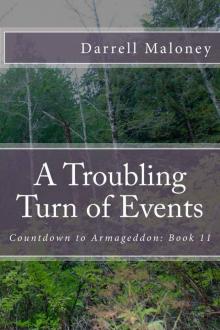 A Troubling Turn of Events
A Troubling Turn of Events The Blockade
The Blockade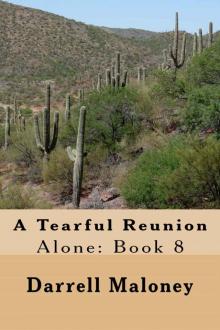 A Tearful Reunion
A Tearful Reunion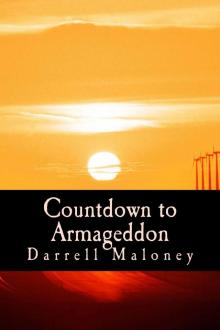 Countdown to Armageddon
Countdown to Armageddon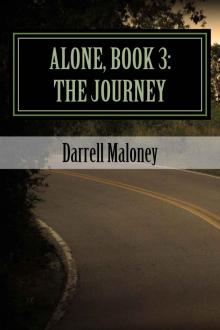 Alone, Book 3: The Journey
Alone, Book 3: The Journey The Army Comes Calling
The Army Comes Calling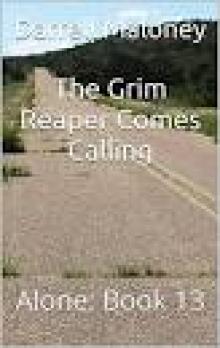 The Grim Reaper Comes Calling
The Grim Reaper Comes Calling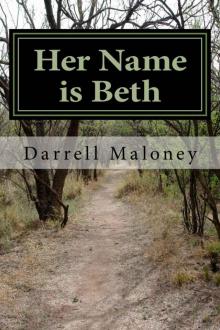 Her Name is Beth: Alone: Book 5
Her Name is Beth: Alone: Book 5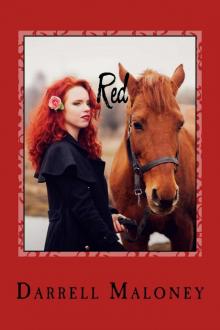 Red: The Adventure Begins
Red: The Adventure Begins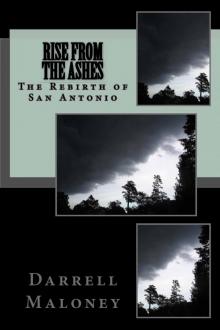 Rise From The Ashes: The Rebirth of San Antonio (Countdown to Armageddon Book 3)
Rise From The Ashes: The Rebirth of San Antonio (Countdown to Armageddon Book 3)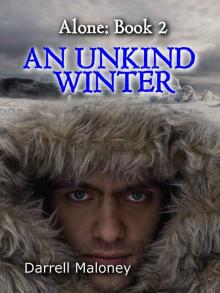 An Unkind Winter (Alone Book 2)
An Unkind Winter (Alone Book 2)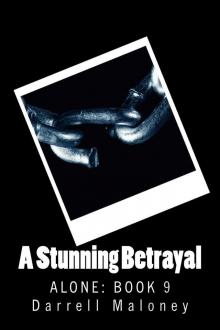 A Stunning Betrayal: Alone: Book 9
A Stunning Betrayal: Alone: Book 9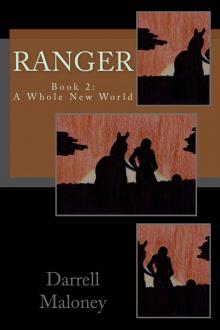 A Whole New World: Ranger: Book 2
A Whole New World: Ranger: Book 2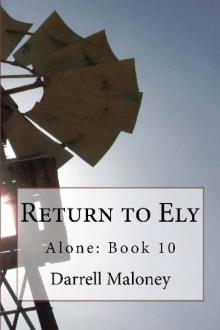 Return To Ely
Return To Ely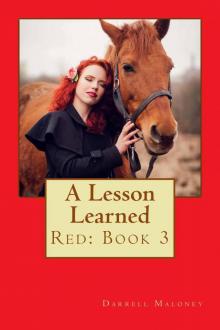 A Lesson Learned: Red: Book 3
A Lesson Learned: Red: Book 3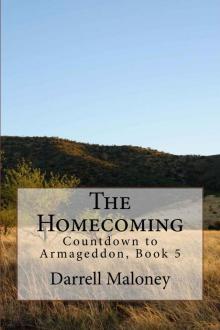 The Homecoming: Countdown to Armageddon: Book 5
The Homecoming: Countdown to Armageddon: Book 5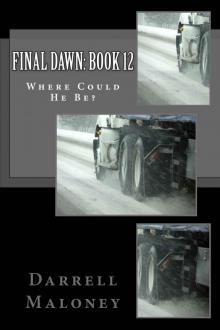 Final Dawn: Book 12: Where Could He Be?
Final Dawn: Book 12: Where Could He Be?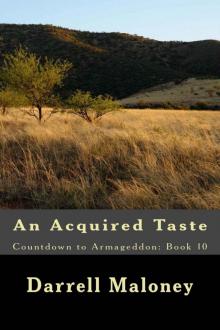 An Acquired Taste
An Acquired Taste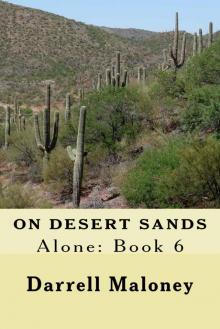 On Desert Sands: Alone: Book 6
On Desert Sands: Alone: Book 6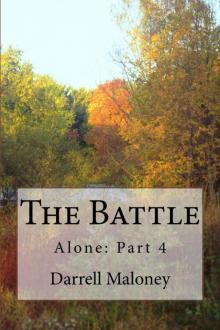 The Battle: Alone: Book 4
The Battle: Alone: Book 4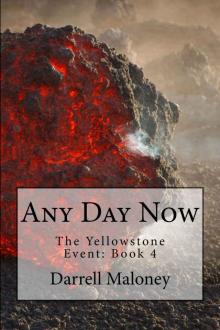 Any Day Now
Any Day Now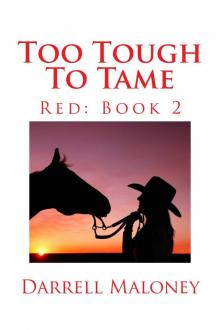 Too Tough To Tame: Red: Book 2
Too Tough To Tame: Red: Book 2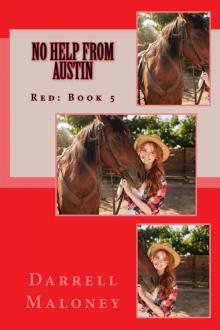 No Help From Austin: Red: Book 5
No Help From Austin: Red: Book 5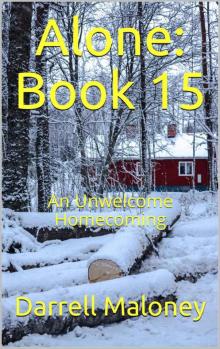 An Unwelcome Homecoming
An Unwelcome Homecoming A New Start: Final Dawn: Book 9 (Volume 9)
A New Start: Final Dawn: Book 9 (Volume 9)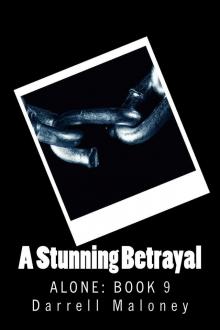 A Stunning Betrayal
A Stunning Betrayal An Undeclared War (Countdown to Armageddon Book 4)
An Undeclared War (Countdown to Armageddon Book 4)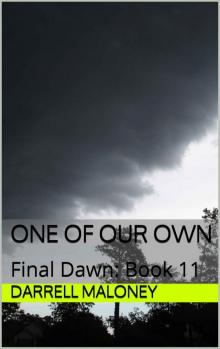 One of Our Own: Final Dawn: Book 11
One of Our Own: Final Dawn: Book 11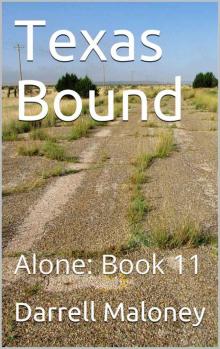 Texas Bound: Alone: Book 11
Texas Bound: Alone: Book 11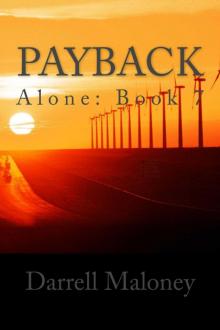 Payback: Alone: Book 7
Payback: Alone: Book 7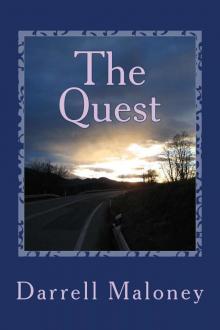 The Quest: Countdown to Armageddon: Book 6
The Quest: Countdown to Armageddon: Book 6 The Siege
The Siege The Yellowstone Event: Book 1: Fire in the Sky
The Yellowstone Event: Book 1: Fire in the Sky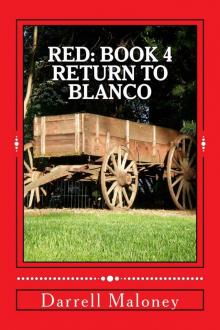 Return to Blanco (Red Book 4)
Return to Blanco (Red Book 4)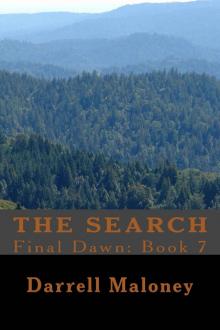 The Search
The Search AFTER THE DUST SETTLED (Countdown to Armageddon Book 2)
AFTER THE DUST SETTLED (Countdown to Armageddon Book 2)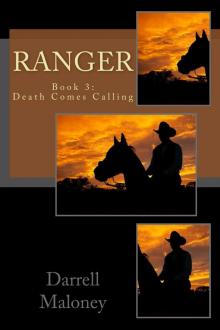 Death Comes Calling (Ranger Book 3)
Death Comes Calling (Ranger Book 3)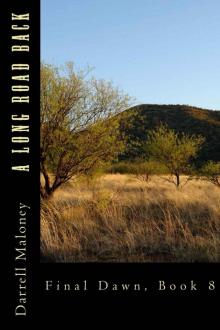 A Long Road Back: Final Dawn: Book 8
A Long Road Back: Final Dawn: Book 8